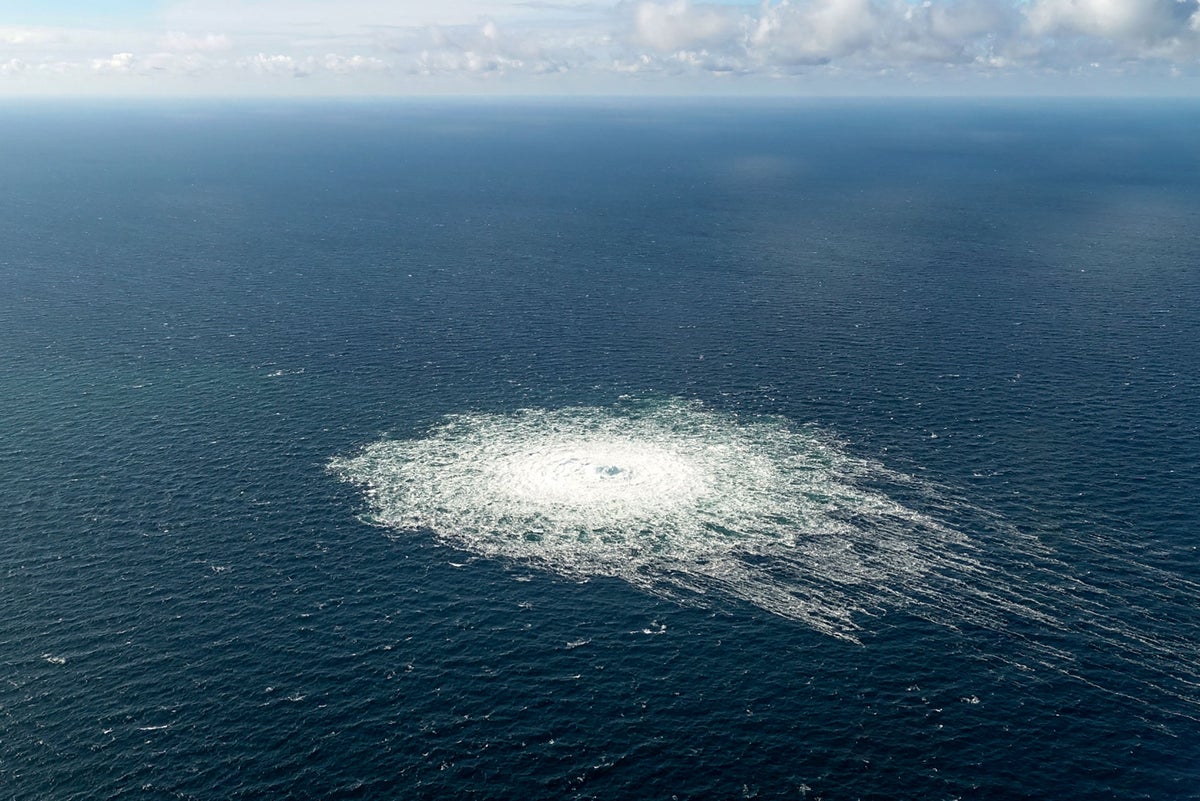
The Kremlin has accused the UN of “whitewashing” the sabotage of the Nord Stream pipelines last year after Russia’s demands for an investigation were rejected at the platform.
Kremlin spokesperson Dmitry Peskov said everyone should be interested in an impartial investigation in order to find the culprits of the explosions of the Nord Stream pipelines in September in the Baltic sea.
"Western countries are making every effort to ‘whitewash’ ... this topic, to paper it over, so that it disappears from the agenda,” he told reporters, according to Tass news agency.
"We will do everything in our power to continue to insist and to initiate such an international investigation," he said, without specifying what Moscow plans to do next.
His comments came after the UN Security Council members voted to reject a Russia-backed resolution to demand a UN-led investigation into the blowing up of North Stream pipelines.
The blasts caused severe damage to Nord Stream 1 and Nord Stream 2 pipelines, rendering the underwater routes for energy trade inoperable. It was a major route to send gas from Russia into Europe via Germany through a tunnel under the Baltic sea.
The explosions were measured at 2.3 and 2.1 on the Richter scale, Swedish and Danish authorities confirmed.
Russia, China and Brazil voted in favor of the resolution, while the remaining 12 council members abstained.
Moscow has accused the West, including the UK and US, of involvement in the sabotage of the pipelines and called it a terrorist act.
The blast occurred in the exclusive economic zones of Sweden and Denmark. It prompted Sweden, Denmark and Germany to launch their own separate investigations.
Mr Peskov said that Russia “regrets” the outcome of its initiative at the UNSC.
"We believe that everyone should be interested in an objective investigation involving all interested parties, all those who can shed light on who commissioned and perpetrated this terrorist act," he said.
The US has denied responsibility for the attack.
The damage to the pipelines came just weeks after Russia’s state-owned supplier Gazprom announced it was closing the 745-mile Nord Stream 1 line “indefinitely”, blaming technical problems and supply issues caused by Western sanctions.
The second Nord Stream pipeline had only recently been completed and had not yet become operational, but plans to start the flow of Russian gas were shelved by Germany just prior to Vladimir Putin’s invasion of Ukraine in February.







